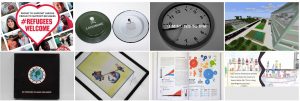
From Nicaragua to Ireland: Fairtrade Coffee and Global Solidarity
Fátima Ismael of Soppexcca, Cathal Murphy from Bewley’s and Fairtrade practitioner Kieran Durnien discuss 20 years of Fairtrade coffee solidarity linking Nicaragua and Ireland.
This guidebook has been developed to support teachers and students in learning about greenwashing as a barrier to sustainable development.
Greenwashing is not a new issue. It isn’t even a recent one.
Yet, the increased attention it has received inside and outside teaching spaces has amplified in recent years. Examples include the Irish Museum of Modern Art (IMMA) ending their involvement with the Texaco Children’s Art Competition, the growth of the ‘sustainable finance‘ market and moves at an EU level to crackdown on greenwashing claims as part of introducing new legislation across the region.
Last week saw a wave of Earth Day events and celebrations – the annual event demonstrating support for environmental protection. In the same week, Ireland passed its Earth Overshoot Day on the 21st of April, 2023 – the day of the year when if all humanity consumed like the people in that particular country (Ireland, in this case) the ecological footprint per person is greater than global biocapacity per person.
The first in a three-part series, this guidebook has been developed to support teachers and students in learning about greenwashing as a barrier to sustainable development and begins by defining the term ‘sustainable development’.
A workshop based on the Greenwashing guidebook was led by Rachel Elizabeth Kendrick on the 11th of May 2023 from 4-5pm.
Sustainability is a principle that refers to the need for humanity to meet planetary development goals to protect the biosphere and future generations.
The term ‘Sustainability’, in the twenty-first century refers to the need for societies to adopt new ways of living that is both Health and Environmental, Social and Governance-focused (ESG); while also taking into account the need for global energy-related carbon dioxide emissions to reach net-zero by 2050.
In the toolkit Sustainability and Youth Work produced in 2018 by the Council of Europe, the authors outline how the current pace of human activity cannot be ‘maintained’ at the same level. At present, carbon emissions
are leading to climate breakdown, industrial farming methods and the demand for minerals and raw materials are causing the depletion of the earth’s resources which include the
degradation of the soil, the pollution of air, sea and water, as well as mass extinctions in the
animal kingd
Originally a doctor, Gro Harlem Brundtland became Norway’s first female Prime Minister and served three terms, gaining recognition for her efforts in promoting gender equality and sustainability. Specifically, Brundtland was celebrated for appointing eight women out of eighteen to her cabinet, a groundbreaking achievement at the time. Beyond breaking Norway’s glass ceiling, Brundtland is still considered the ‘mother of sustainability’ for two main reasons”.
Firstly, for having introduced the term ‘sustainable development’ in the World Commission on Environment and Development Commission’s report Our Common Future in 1987:
“We no longer have a choice: either we adopt behaviours that respect sustainable development, that is, stop polluting the environment, allow for the renewal of natural resources and contribute to improving the well-being of all, or sooner or later, we sign our death warrant.”
Secondly, for her commendable work in promoting economic development in line with:
Roles she held in this field include serving as the director general of the World Health Organization (WHO) and chairperson of the U.N. Commission on the Environment.
Note: It is worth noting that the concept of sustainable development and strides towards achieving it has evolved constantly since its inception referenced earlier. Nonetheless, Brundtland’s contributions have been foundational in shaping the discourse and action around sustainability, making her a pioneer and a role model for generations to come.
| Environmental | Economic | Social |
|---|---|---|
| This pillar refers to promoting the responsible and sustainable use of natural resources and protecting the environment for future generations. It also involves taking action to ensure that economic and social development occur in an environmentally responsible way. | This pillar involves promoting sustainable business practices, fair trade practices and ensuring access to financial services for all. It also involves promoting economic policies that consider the long-term social and environmental consequences of economic growth and development. | This pillar promotes social and environmental justice, well-being, equity and inclusion, among other elements of society that need to be protected. Social sustainability also aims to foster economic and environmental benefits. |
Being sustainable can be defined as the ability ‘to be maintained at a certain rate or level’. Undoubtedly, the current pace of human activity cannot be ‘maintained’ at the same level: carbon emissions are leading to climate breakdown, industrial farming methods and the demand for minerals and raw materials are causing the depletion of the earth’s resources, the degradation of the soil, the pollution of air, sea and water, as well as mass extinctions in the animal kingdom’, as described in the Council of Europe’s Sustainability and Youth Work toolkit (p.48).
Sustainability is the state of being sustainable. It is the state in which human beings and the natural world exist in harmony.
Greenwashing refers to when bodies promote or make exaggerated claims that initiatives, products and or services are environmentally friendly when in actuality, those bodies operate in an opposing manner to the claims made.
Greenwashing is a barrier to sustainability, undermining genuine environmental efforts towards achieving all seventeen sustainable development goals. More specifically, as outlined on page two of the transforming our World: the 2030 Agenda for Sustainable Development, we must stop greenwashing if we want to:
Protect People
We are determined to end poverty and hunger, in all their forms and dimensions, and to ensure that all human beings can fulfil their potential in dignity and equality and in a healthy environment.
Protect The Planet
We are determined to protect the planet from degradation, including through sustainable consumption and production, sustainably managing its natural resources and taking urgent action on climate change, so that it can support the needs of the present and future generations.
Promote Prosperity
We are determined to ensure that all human beings can enjoy prosperous and fulfilling lives and that economic, social and technological progress occurs in harmony with nature.
Promote Peace
We are determined to foster peaceful, just and inclusive societies which are free from fear and violence. There can be no sustainable development without peace and no peace without sustainable development.
Increase Global Partnership
We are determined to mobilise the means required to implement this Agenda through a revitalised Global Partnership for Sustainable Development, based on a spirit of strengthened global solidarity, focused in particular on the needs of the poorest and most vulnerable and with the participation of all countries, all stakeholders and all people.
The 2030 Agenda for Sustainable Development
One of the most pressing challenges facing the world today is climate change which threatens the sustainable development of communities worldwide.
The United Nations developed the 2030 Agenda for Sustainable Development to address this challenge in 2015. Arguably, the sustainable development goal (SDG) number seventeen is the most important SDG as the entire development architecture collapses if we remove number seventeen from the blueprint for change.
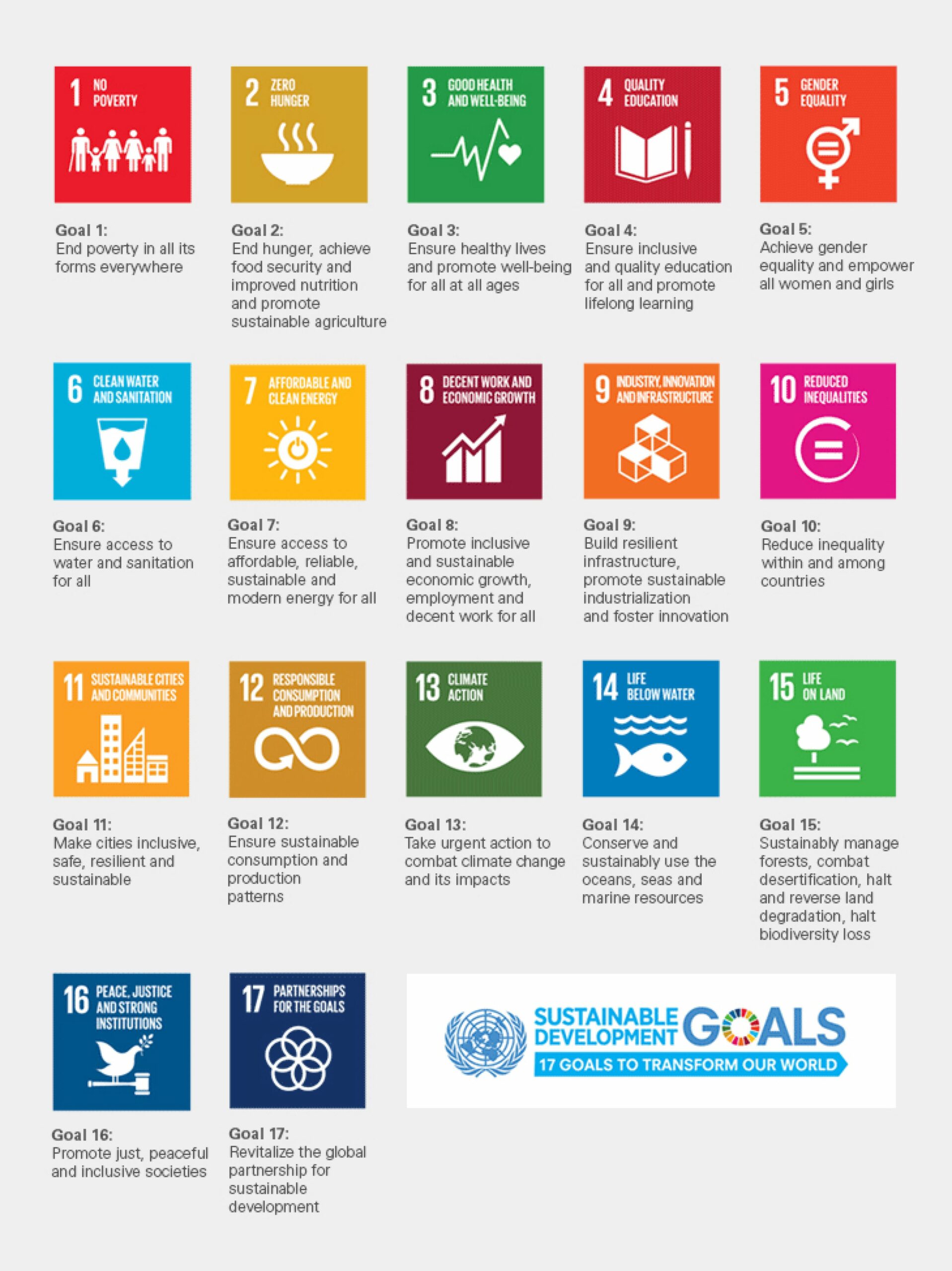
As indicated by Sustainable Development Goal seventeen, monitoring and stopping greenwashing practices involves multiple bodies, including governments, civil society, individuals and local communities worldwide.
The sentiment in the paragraph above is backed up by the preamble of the ambitious, universal and indivisible 2030 Sustainable Development Goals Agenda, which states:
“All countries and all stakeholders, acting in collaborative partnership, will implement this plan. We are resolved to solve the human race from the tyranny of poverty and want and to heal and secure our planet.”
Four Sustainable Development Goals that are related to greenwashing are:
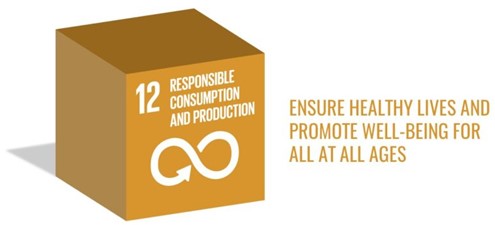
Greenwashing practices can undermine global efforts to achieve Goal 12, as misleading consumers can lead them to buy products that may not be sustainable or environmentally friendly or are less environmentally friendly than other products. Additionally, greenwashing can undermine the credibility of legitimate environmental certifications and labels.
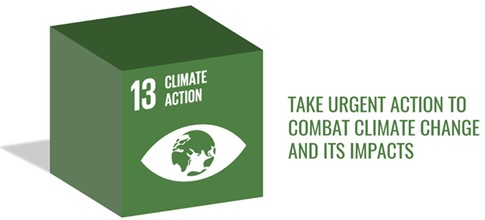
Greenwashing practices can undermine global efforts to achieve Goal 13; for example, by promoting products or services that do not reduce greenhouse gas emissions or contribute to the fight against climate change compared to other environmentally friendly products.
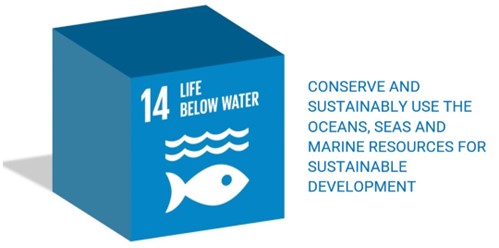
Greenwashing practices can undermine global efforts to achieve Goal 14 through the harm it causes marine ecosystems by promoting products that may contain harmful chemicals or contribute to marine pollution.
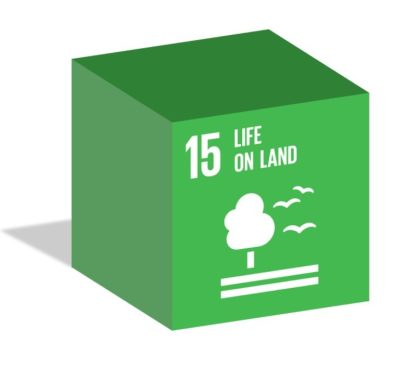
PROTECT, RESTORE AND PROMOTE SUSTAINABLE USE OF TERRESTRIAL ECOSYSTEMS, SUSTAINABLY MANAGE FORESTS, COMBAT DESERTIFICATION, AND HALF AND REVERSE LAND DEGRADATION AND HALT BIODIVERSITY LOSS.
Greenwashing practices can undermine global efforts to achieve Goal 15 as it promotes products that may contribute to land degradation, habitat biodiversity loss and other forms of environmental deterioration for the environment.
Rationale: This section introduces a method for approaching teaching and learning for sustainable development, particularly greenwashing, within the politics and society classroom specifically, but is also suitable for teachers of other subjects who wish to avail of opportunities and linkages for teaching and learning for education for sustainable development and greenwashing in their classroom.
The approach involves analysing the role of each of the five bodies (below) play in engaging, preventing and stopping Greenwashing practices.
The five bodies are:
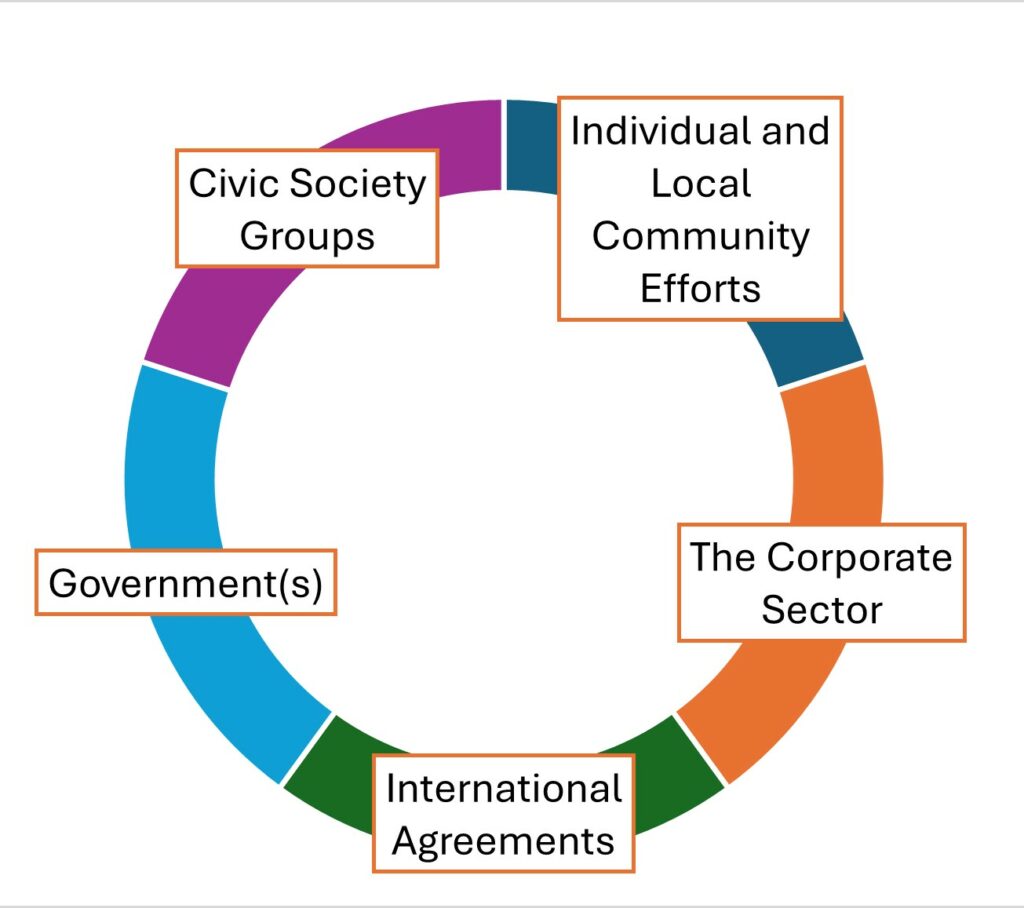
The next section of this guidebook outlines a fundamental analysis of the roles these five core bodies play in generating environmental impact and promoting and/or hindering sustainable development.
Note: Once students learn about the five different core bodies that affect sustainable development, they can begin to make connections between the different bodies and analyse how all five bodies are interconnected.
| Students learn about: | Students should be able to: |
|---|---|
| 8.1 Actions that address sustainable development |
Consider the role of each of the following in achieving sustainable development:
- Individual and local community efforts - Corporate/ business sector - Civic society groups, including trade unions - Governments - International agreements *refer to the second part of this series. |
| Assessment - citizenship project |
Each year, students will choose one title from four specific areas. One of these areas is ‘Sustainable development’.
- 2024 title: Survey a group of senior cycle students on their understanding of sustainable consumption and what they believe is their responsibility as young consumers. Use your findings to organise a campaign to inform and support an existing campaign group/organisation that is working on this topic at a local or national or international level. - 2023 title: ‘Investigate the concept and consequences of greenwashing. Use your findings to inform a school-based event in which you raise awareness about this issue ’. |
| Students learn about: | Students should be able to: |
|---|---|
| The difference between personal behaviours and wider systemic changes that need to happen | 2(b). Reflect on the impact and effectiveness of a personal behaviour in reducing negative consequences on the environment; compare to actions that aim to achieve wider systemic transformation |
*Refer to part(s) 2 & 3 of the guidebook
| Students learn about: | Students should be able to: |
|---|---|
| 4.5 Environmental Impact |
Consider the impact of the burning of fossil fuels and the use of alternative energy sources.
Discuss the environmental pollution at a local/national and global scale. |
| Students learn about: | Students should be able to: |
|---|---|
| 1.9 Exploring Business |
Debate the ethical and sustainability issues that arise from their consumption of goods and services and evaluate how they can contribute to sustainable development through consumer behaviour.
*Refer to part 3 of the greenwashing guidebook, case study #1, Shein: Empowered Agile Supply Chain or Fast Fashion? |
| Students learn about: | Students should be able to: |
|---|---|
| 2.2 Sustainability |
Consider a variety of definitions of development and devise their own definition of sustainable development
*Refer to part one of the guidebook series. |
| 2.9 Effecting Global Change |
Analyse one global issue or challenge, under the following headings: causes, consequences, impact on people’s lives and possible solutions.
*Refer to part three of the guidebook series |
| 2.10 Effecting Global Change |
Evaluate how they can contribute to responding to one challenge
currently facing the world
**Refer to case study #2, Ban Fossil Fuels Ad: European Initiative (Guidebook, part three) |
| Students learn about: | Students should be able to: |
|---|---|
| 3.8 Sustainable and Responsible Living |
Discuss the influences of trends and choices on textile and clothing, including ethical and ecological considerations
*Refer to case study #1, Shein: Empowered Agile Supply Chain or Fast Fashion? (Guidebook part three). |
| 2.10 Effecting Global Change |
Evaluate how they can contribute to responding to one challenge
currently facing the world
*Refer to case study #2, Ban Fossil Fuels Ad: European Initiative (Guidebook, part three) |
| Students learn about: | Students should be able to: |
|---|---|
| Physical world: Sustainability | 4.8 Research and discuss the ethical and sustainability issues that arise from our generation and consumption of electricity |
Note: parts 2 and 3 of this greenwashing series highlight a non-exhaustive list of opportunities and linkages for teaching and learning for Education for Sustainable Development (ESD) and Greenwashing across the curricula at second level.

Join us for part 2 of the greenwashing series which will look at core bodies involved in using, identifying and stopping greenwashing practices across the curricula.
A workshop based on the Greenwashing guidebook was led by Rachel Elizabeth Kendrick on the 11th of May 2023 from 4-5pm.
About the author
Update: This feature was originally published on 28 April 2023 and was updated on 28 May 2025 to include specification details of Science and the subject Climate Action and Sustainable Development.
The following individuals were particularly important in compiling this part of the handbook.
The following resources were particularly important in compiling this part of the greenwashing guidebook:

Fátima Ismael of Soppexcca, Cathal Murphy from Bewley’s and Fairtrade practitioner Kieran Durnien discuss 20 years of Fairtrade coffee solidarity linking Nicaragua and Ireland.
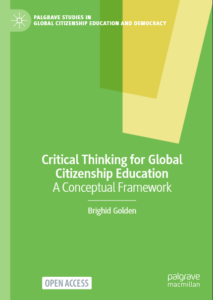
Join Brighid Golden for the launch of her latest book, ‘Critical Thinking for Global Citizenship Education: A Conceptual Framework’
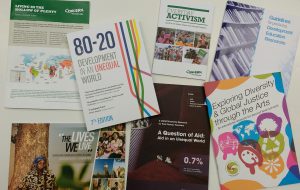
It’s January, its 2026, and we want to hear what you’d like us to feature or work on in 2026.
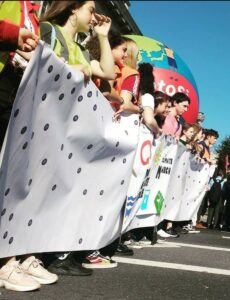
Your voice is vital in shaping the future of education for sustainable development in Ireland. Join a national survey for post primary teachers in October, led by DCU researcher Valerie Lewis

The webinar will feature YSTE projects, from Santa Sabina Dominican College (Dublin), Moate Community School (Westmeath) and CBS Thurles that focussed on nutrition and better food production, with Self Help Africa’s nutrition and gender specialist in Ethiopia, Sara Demissew.
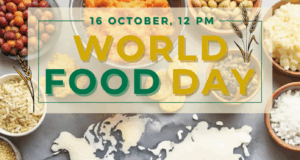
Join the World Food Day webinar for post primary school students and teachers which will explore SDG 2: Zero Hunger.